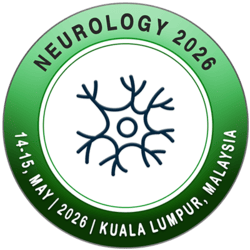Track: Central Nervous System

Session Overview:
The Central Nervous System (CNS) plays a pivotal role in controlling and coordinating all bodily functions, serving as the primary hub for processing sensory information and initiating responses. In this session, we will explore cutting-edge research and innovations that are transforming our understanding of CNS disorders, such as Alzheimer's disease, Parkinson's disease, multiple sclerosis, and traumatic brain injuries. Participants will gain insights into neuroplasticity, the brain's remarkable ability to adapt and recover, and how this knowledge is being applied to develop new therapies. The session will also cover advances in neuroimaging techniques that allow for earlier and more accurate diagnoses, as well as novel therapeutic approaches, including gene therapy and neurostimulation. Attendees will have the opportunity to engage with experts in the field, discuss the implications of these developments, and explore the ethical considerations surrounding emerging CNS treatments.
Recent Developments:
Recent Developments:
Recent advancements in neuroimaging, including high-resolution MRI, are providing unprecedented details of brain structures, enabling earlier detection of neurodegenerative diseases and more precise brain lesion mapping. Functional connectomics is enhancing our understanding of neural pathways, aiding in the study of conditions like autism, schizophrenia, and depression. In gene therapy, CRISPR-Cas9 technology is being applied to edit genes linked to neurological disorders, offering potential cures for conditions like Huntington's disease, while adeno-associated viruses (AAV) are showing promise in treating spinal muscular atrophy. Progress in neuroplasticity includes stem cell therapies for repairing CNS tissue, offering hope for spinal cord injury and stroke patients. Optogenetics is rapidly advancing, providing new insights into brain function and potential therapies for epilepsy and Parkinson's disease. AI-powered diagnostics and machine learning are improving CNS disorder treatments and accelerating drug discovery. Additionally, therapies targeting microglia are reducing neuroinflammation, and wearable neuromodulation devices like TMS and tDCS are being optimized for non-invasive treatment of mental health conditions.
Sub-Tracks:
Neurodegenerative Disorders
Focuses on the mechanisms, early detection, and novel treatments for conditions like Alzheimer’s, Parkinson’s, and Huntington’s diseases.
Neuroplasticity and Repair
Examines the brain's ability to reorganize itself by forming new neural connections and advances in therapies aimed at enhancing recovery after injury.
Neuroinflammation
Investigates the role of inflammation in various CNS disorders, including its impact on disease progression and potential therapeutic strategies.
Neurogenesis
Explores the process of generating new neurons in the brain and its implications for cognitive function and mental health.
Neuroimaging and Diagnostics
Covers the latest advancements in imaging techniques and diagnostic tools that enhance the understanding and treatment of CNS disorders.
Neuropharmacology
Sub-Tracks:
Neurodegenerative Disorders
Focuses on the mechanisms, early detection, and novel treatments for conditions like Alzheimer’s, Parkinson’s, and Huntington’s diseases.
Neuroplasticity and Repair
Examines the brain's ability to reorganize itself by forming new neural connections and advances in therapies aimed at enhancing recovery after injury.
Neuroinflammation
Investigates the role of inflammation in various CNS disorders, including its impact on disease progression and potential therapeutic strategies.
Neurogenesis
Explores the process of generating new neurons in the brain and its implications for cognitive function and mental health.
Neuroimaging and Diagnostics
Covers the latest advancements in imaging techniques and diagnostic tools that enhance the understanding and treatment of CNS disorders.
Neuropharmacology
The study of drugs and their effects on the nervous system, including mechanisms of action and therapeutic potentials for various CNS disorders.
Neurodevelopmental Disorders
Focuses on conditions that affect brain development, such as autism spectrum disorders, ADHD, and intellectual disabilities.
Neuroscience of Pain
Examines the mechanisms of pain perception and processing, and explores treatments for chronic pain conditions.
Cognitive NeuroscienceInvestigates the neural basis of cognitive functions such as memory, attention, and language.
Neuroendocrinology
Studies the interactions between the nervous system and endocrine system, including how hormones affect brain function and behavior.
Scientific Highlights
- Neurology
- Neuro Anatomy
- Mental Health and Psychiatry
- Geriatric Neurological Disorders
- Neuromuscular Diseases
- Brain Tumor and Neuro-oncology
- Cerebrovascular and Critical Care Neurology
- Clinical Neurophysiology
- Central Nervous System
- Neuro-Ophthalmology
- Pediatric Neurology
- Neuroimaging and Brain Mapping
- Neurogenetics and Neurodegenerative Disease
- Behavioral and Cognitive Neuroscience
- Neurochemistry and Neuropharmacology
- Spinal Neurosurgery and Neural Transplantation
- Neuro Robotics and Neuro Modulators
- Addiction and Adult Psychology
- Brain Stimulation and Computational Neuroscience
- Neural Control of Micturition
- Parkinson's Disease


